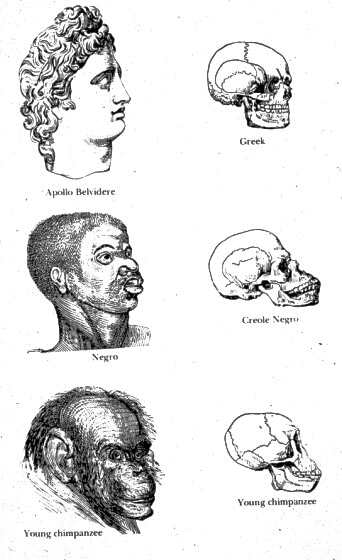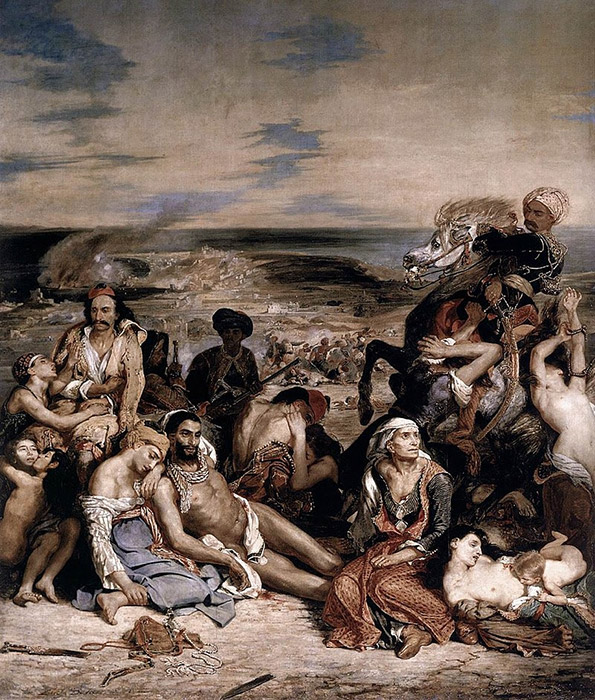NATIOИ—RAÇE
That modern Greece did not have colonies or slave plantations does not mean that contemporary discussions of race and racialization are out of place in the Greek context. To the contrary: race is the bedrock of the nation-form. Whiteness and racial supremacy shaped the idea(l) of “ancient Greece,” marked the terms of neohellenic modernity and still vitally inform dominant discourses in the Greek public sphere.
We consider nationalism itself to be an ideology and mode of imagining the world, wherein body, place, time, and history are intricately entangled with colonial imaginaries and practices. As such, our efforts to resist nationalism and the nationalization of our thought, imagination and practice can only be viewed and understood as part of the broader decolonizing project. It is imperative, therefore, to foreground whiteness and racial supremacy as the central ideology and technology of Euro-american governmentality and western capitalism in any discussion of revolution, enlightenment, modernity, knowledge — indeed of “Europe.”

Illustration from Types of Mankind (1854) by American slaveowner, surgeon and physical anthropologist Josiah Clark Nott and American Egyptologist George Robins Gliddon. Source: Library of Congress.
Accordingly, this cluster will explore contemporary research that is bringing critical race theory into conversation with the classics to confront the disciplines, institutions and practices that “whitened” and Europeanized classical heritage. Furthermore, it will examine how this racialized legacy might connect to various forms of indigenous Hellenisms and how “whiteness” as a racialised ideology of identification with civilisation and modernity might have worked in the modern Greek national project as a whole. Secondly, acknowledging the instrumentality of the nation form to European colonial expansion and (now waning) global domination might enable us to reframe extensive anthropological, historical, archaeological, literary and linguistic research – as well as artistic interventions – on issues of nationalism, nation-making, minorities and ethnic, linguistic and religious discrimination. Through this optic, neglected aspects of the history of Greek nationhood and contemporary exclusions, racism and fascist violence could be (re)viewed in relation to global contemporary activist and intellectual interrogations and refutations of colonial afterlives, white supremacy and anti-blackness.
Some of the questions that could jumpstart investigations and collaborations in this cluster are the following:
- How might a critical genealogy of key terms such as slavery or enslavement and emancipation inform the particularities of their use in the Greek context?
- How have historic Greek categories such as genos and fyli, related to ideas of religious and/or cultural communality and descent, transformed historically in relation to “modern” European nationalized, ethnicized, biopolitical and eugenicist conceptions of race? When do these different discourses of “blood” intersect and converge?
- How did religion serve as a key modality through which the War of Independence and the new nation were racialized? What role has religion played in forming contemporary legacies of national purity and racial amnesia? How, and to what extent, did notions of citizenship draw upon and invigorate the assemblage of nation-race-religion?

Eugène Delacroix, The Massacre at Chios (1824). Source: Wikimedia Commons
- What varieties of Hellenisms (i.e. indigenous, western, neo-hellenism) have been articulated, and by whom? How, to this day, have these been variously imbued with idioms of colonialism, racism, orientalism, patriarchy, Christianity? How has Hellenisms’ longevity allowed it to span a number of wider cultural narratives, from nation-building to universalism, and even to regional discourses, such as Mediterraneanism? How might current debates concerning the Global South inform and redraw these cultural topographies?
- How might we approach and explore a history of Greece’s own colonial ambitions and projects?
- Does the lens of colonization – widening its focus to look beyond British rule on the island – generate novel understandings of the status of Cyprus and its identities in the eastern Mediterranean and beyond?
- Might the sustained focus on colonization purveyed in Balkan cultural studies since the 1990s, and despite opposition among some historians, further elucidate the terms of ethno-racial hierarchies in the region?
- What has been the role of historiography, archaeology, anthropology, demography, geography, cartography, medicine, literature, and the arts in disciplining the nation and grounding modern Greek racial, gendered and cultural identities and hierarchies?
- To what extent have discussions of ethnicity and nationalism in the Greek context touched upon questions of shifting racialised identities? How are Greek ethno-national (and religious) boundaries drawn and contested today? To what extent do they become transmutated into racist discourses against various internal “others” (Roma, Slavs, Macedonians, Muslims, Jews), as well as against abject others – migrants and refugees, workers, as well as gays, trans and gender nonconforming people? How does the framing of these groups in cultural-civilizational terms work to absolve the Greek public from confronting the charge of racism? More generally, what would a Greek “cultural archive’ of racialisation – focusing on sites of everyday knowledge about race – look like?

Basketball star Giannis Antetokounmpo sworn in as a signalman at the Armored Vehicle Training Center in Avlona. 2016. Photograph: Andreas Papakonstantinou/ Eurokinissi.
-
-
- How have domestic debates or protests regarding the Afroasiatic influences of classical civilisation such as the Black Athena argument mirror and complicate their prior contestations in Europe and the U.S.?
- How is the Greek diaspora positioned in settler colonial states such as the U.S., Canada and Australia? To what extent might the interstitial racial subjectivity of immigrant Greeks as “white ethnics” help us frame critique and resistance in the face of a not inevitable assimilation?
-
Convenors: Vangelis Calotychos, Yiannis Hamilakis and Sissie Theodosiou

